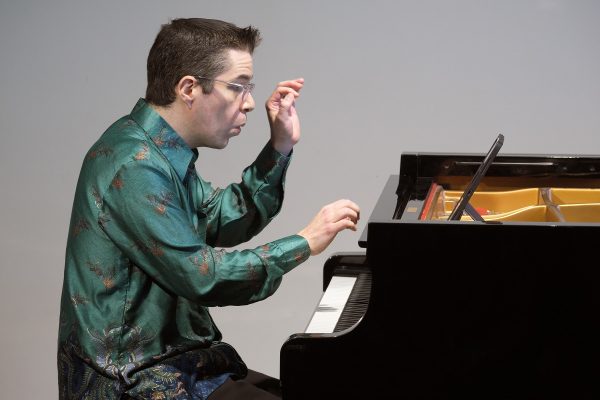
CIMF, Concert 13: “Birds in Paradise”, Australian Centre for Christianity and Culture, May 5. Reviewed by JAYDEN LOHE.
WHILE the music of humankind dominates our musical attention, this concert displayed the beauty and merit of a kind of music originating in our natural landscape – that of birdsong from all over the world.
It was a fabulous hour-long concert featuring the varied songs of birds presented in an artistic way.
The concert was held in the chapel of the Australian Centre for Christianity and Culture, and the performers Edward Neeman (piano) and Anna McMichael (violin) delivered a striking concert celebrating the sounds of birds. It came as part of the Canberra International Music Festival’s focus on the natural world, and the concert drew a large audience of music lovers, ornithologists, Messiaen-fanatics and everyone in between.
Neeman opened the concert with 20th century French composer Olivier Messiaen’s work “Alouette lulu” (The Woodlark), a reference to a small passerine bird found in Europe and the Middle East. Messiaen, especially in the latter half of his life, became fascinated by birdsongs and travelled the world transcribing them.
As with all works in this concert, a recording of each birds’ song or call was projected in the chapel before the performance, helping to contextualise the musical representation that followed.
“Alouette lulu” opened with slow-moving chords in the lower register, followed by the woodlark’s call played crisply in the top register. Its resemblance to the woodlark’s recording was uncanny, and Neeman delivered a gripping, birdlike performance.
Neeman then played six works from a set of 70 bird calls by early 20th century Australian composer Hooper Brewster-Jones, a lover of the Australian bush and its birdsong. Among these were “Rosella’s Wooing“, “Wattle Bird” and “Magpie in the Air”, all more tonal than the Messiaen. Although Hooper-Jones’ musical representations of these bird songs were perhaps somewhat far-fetched, Neeman did well to convey the character of each birdcall and the chaotic environment in which it was found.
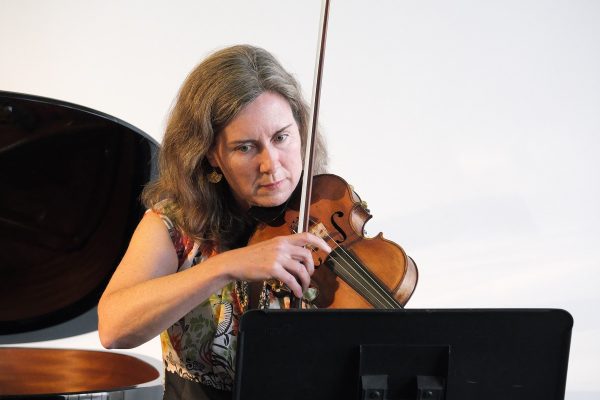
Violinist Anna McMichael then performed a work by Hollis Taylor, a US-born Australian-based composer and zoomusicologist (studying the musical aspects of sounds produced by animals). “Riffingbirds”, four pieces for violin, was based on the birdsong of the Australian native Pied Butcherbird (Cracticus nigrogularis). It was a striking work with many short, repetitive patterns followed by short pauses, and although it was a more abstract work, perhaps difficult to follow for those without strong familiarity to the Pied Butcherbird’s call, McMichael kept the audience absorbed with her elegant performance.
The two remaining works were solo piano works.
The first was Australian-indigenous composer Christopher Sainsbury’s “The Arrival”. Sainsbury, an associate professor at the ANU, was commissioned to write the work for the 2018 centenary of Polish Independence, and it explores the Polish journey of settling in Australia largely after World War II. The songs of Polish and Australian birds formed recurring motifs in the moderately paced work, and Neeman gave an expressive performance.
Having begun with Messiaen, it was only fitting he had the last word. The final work, “Traquet rieur” (The Black Wheatear, Oenanthe leucura) was taken from the same cycle as the opening work. The Iberian bird’s call was easily discernible in the music and Neeman’s beautiful crisp touch on the piano and masterful control of the tempo was commendable.
As Neeman finished, a recording of the Black Wheatear’s song was projected in the space, giving the audience reason to reflect on the beauty of birdsong and the skills of composers in their representations.
The performers highlighted how rewarding the sounds of nature can be, in particular birdsong, and how nature can drive creativity in music. They were rewarded with long applause.
Who can be trusted?
In a world of spin and confusion, there’s never been a more important time to support independent journalism in Canberra.
If you trust our work online and want to enforce the power of independent voices, I invite you to make a small contribution.
Every dollar of support is invested back into our journalism to help keep citynews.com.au strong and free.
Thank you,
Ian Meikle, editor
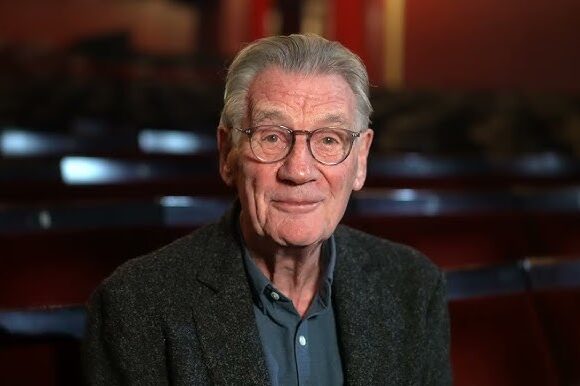
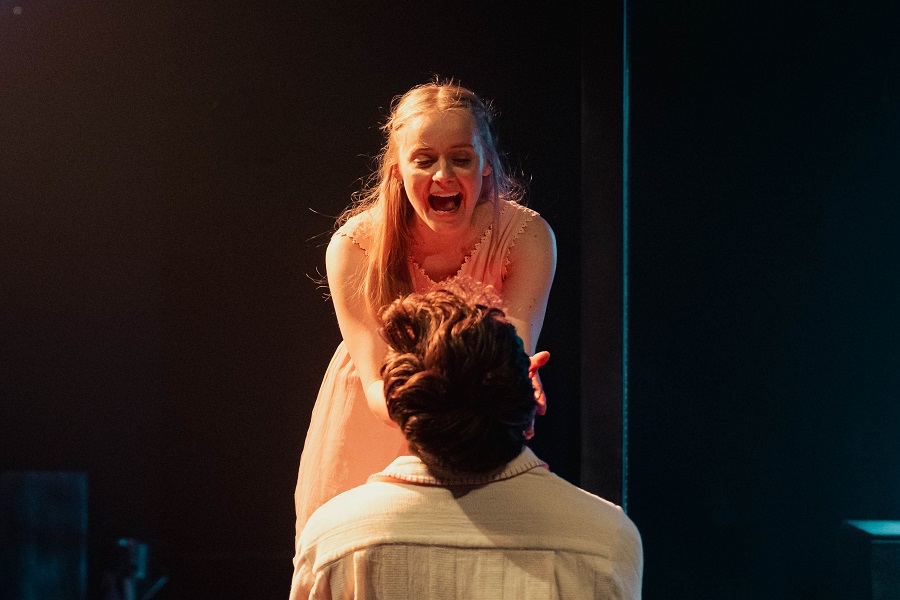
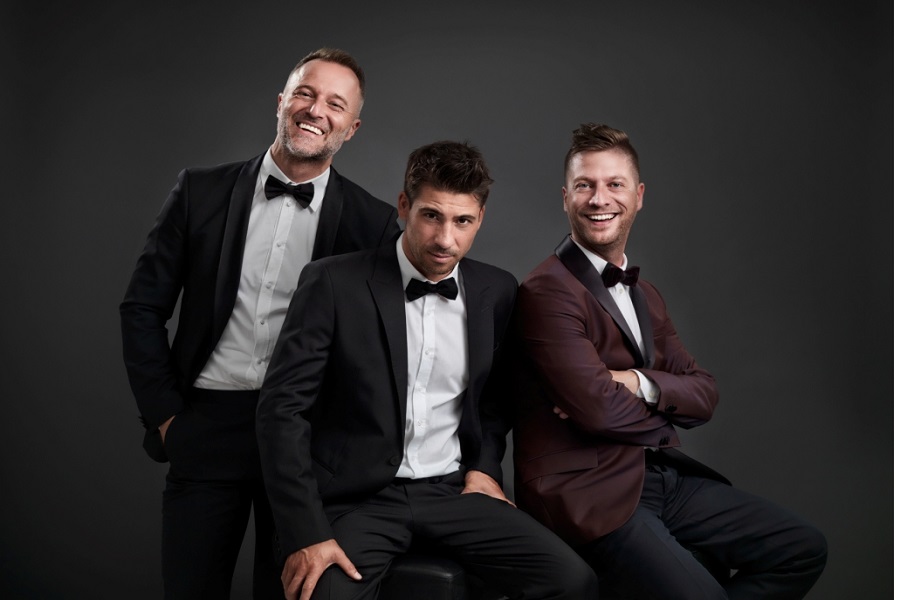
![Evie Hudson is a woman with amnesia, who forgets the last 13 years. Piecing her life back together, she navigates the harsh realities of coercive control.
Evie is the leading character in local author @emmagreyauthor's second novel Pictures of You.
Her debut book, The Last Love Note, sold more than 100,000 books worldwide within a few months of being published last year.
“I think that using amnesia really helped [show the effects of coercive control] because she had that sense of being completely lost in her own life,” Emma says of her new work of fiction.
To read the full story and find out more about this fabulous local author and her latest novel, visit our website at citynews.com.au or click the link in our bio! 📚✒️
#canberra #local #canberralocals #canberralife #australia #author #localauthor #Picturesofyou #coercivecontrolisabuse #dvawareness #bestsellingauthor #canberraauthor #localnews #citynews](https://citynews.com.au/wp-content/plugins/instagram-feed/img/placeholder.png)
Leave a Reply